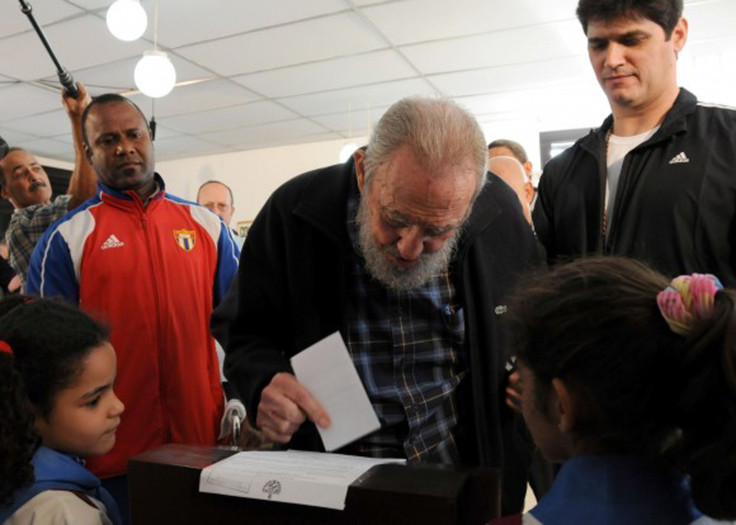Fidel Castro Emerges To Vote In Cuba's One-Party Elections

Cuba’s aging Communist patriarch Fidel Castro appeared in public for the first time in several years to vote in the country’s parliamentary elections.
Castro, 86, made his first public appearance since 2010 Sunday in Havana following reports that he had suffered a stroke last October and was close to being declared mentally infirm.
The former president, hunched over and appearing frail, cast his vote along with some 8.7 million other Cubans to choose the next 612 members of the National Assembly, though no opposition candidates outside the Communist Party and its affiliates were on the ballot.
“The people are truly revolutionary, they have really sacrificed,” said Castro, praising public participation in the elections, Reuters reported. “We don't have to prove it, history will. Fifty years of the blockade and they haven't given in."
Critics of the Cuban government considered the parliamentary elections undemocratic and lacking in genuine political options.
"What strange elections, in which there is no choice and all the candidates think the same," said Yoani Sanchez, a Cuban dissident blogger, according to Al Jazeera. "It's an electoral farce."
Current president and Castro’s younger brother, Raul, said multi-party elections would allow for the legitimization of “imperialist parties.”
"Renouncing the principle of a single party would be equal to legalizing one or more imperialist parties," he said at a Communist Party conference last year, Reuters reported.
Raul, 81, succeeded his brother as acting president in 2006, following vague reports of the elder Castro’s declining health. He was officially elected by the National Assembly in 2008. Fidel Castro had previously been in power since 1959, representing the only other leader Cuba has known in over half a century.
While Cuban legislators run in so-called public elections every five years, senior government officials have no such limits on their posts.
In 2011, Raul proposed term limits for top government officials, suggesting a maximum of two five-year terms (including for himself) though such legislation has yet to be implemented.
If such a law were to pass, Raul could potentially step down as soon as 2018, though it is far from clear who would replace him.
© Copyright IBTimes 2024. All rights reserved.





















